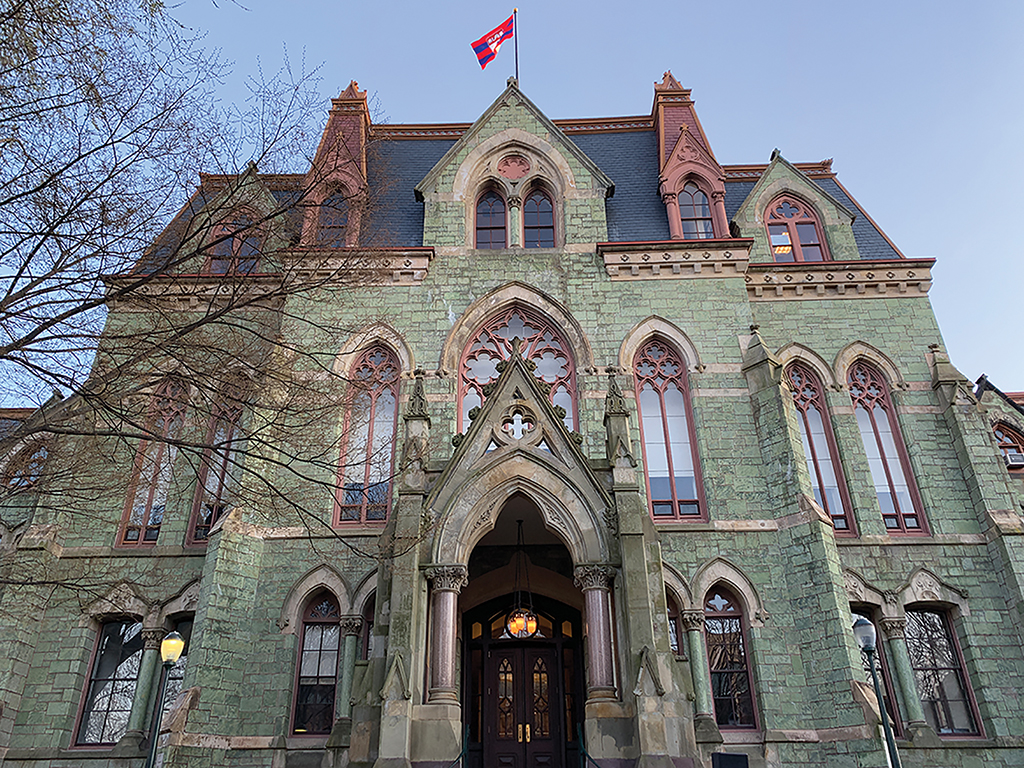
Over 100 students gathered around Locust Walk the night of April 4 over one thing: sexual assault. The keynote speaker, Sonalee Rashatwar , a sex therapist and award-winning social worker from Philadelphia, gave students a better idea of what being a woman is like on a college campus.
“What I specialize in within the field of therapy is … sexual trauma,” she said. “I came to that line of work because of my own experiences … I have patchy memories of a childhood experience. Due to really high stress hormones within the body that causes us to have patchy memories.”
This includes experiencing sexual assault as a child to being drugged at a college party and how it affects your mental health as an adult. She asks the crowd to expand their knowledge on sexual trauma or violence and to acknowledge that it takes many forms. An intimate relationship that causes a breakdown with another or surviving in racialized capitalistism are both examples.
She explains the gap of progressiveness around colored women, how migrant women are exploited for their labor each day and receive no credit in their field because of what they look like. Women who are black and brown must deal with racism which increases their risk of sexual assault because they are not seen as human. In fact, she says colored women are more inclined to face sexual trauma.
She uses herself as an example, how her nearly identical brother and her were both overweight kids yet she was the only child placed on a conformed diet to lose weight by her parents. She raises the question: what does this say about our society? Do we see woman as adults at a earlier age than men? She brings awareness on how we view little girls to be attractive at all times and the effect it has on them. It can lead to patchy memories, adult isolation and insecurity.
“I want us to center the conversation around those who do not have marches in their names,” Rashatwar said.
By this she was referring to exploited migrant women and women in the workplace or in an education setting. After her speech, students marched throughout the University of Pennsylvania campus chanting “No means no!” or “My body, my choice!” Although a relatively small group, there was much uproar. Students within the rally were survivors of sexual assault as well.
From the eastern side of the campus headed west, students of all backgrounds had the opportunity to march throughout the evening with a small marching band that kept the tempo of the chants. There were signs in most of the students hands that read “You are Valid” or “Your voice has power,” which were held high for all to read and for bystanders to support and cheer on.
She continues to speak on using facilities for safe spaces for women, which at the university is their Women’s center to get counseling or confide in others.
“Being a senior is a lot of trial and error of where to avoid,” Rego said.
“I found that a lot with the larger groups on campus there isn’t much change, so I kind of just stay away.” The larger groups she says, are the fraternities that lure unsuspecting women in for parties and events.
“As a freshman I know I made a lot of mistakes going to the wrong places,” she admitted.
Her advice is to know you are not alone. Talking to friends and family helps with coping and allows space for empowerment from within.
“Your pain means something,” she said. After the march, students were invited to see Rashatwar on a panel discussing the effects of sexual trauma in detail.


